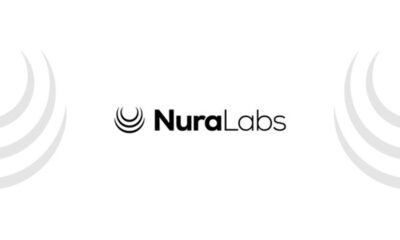Alternative Energy
Navigating Tech Outsourcing in the Age of AI

The world of tech outsourcing is undergoing a revolutionary change. The entire industry landscape is shifting as a significant 25% of companies increasingly turn to AI due to a labor skill gap, as highlighted by the IBM Global AI Adoption Index. Nick Baca-Storni, Business Developer Director at InclusionCloud, offers in-depth knowledge of the tech outsourcing industry. He identifies essential aspects where vendors aiming to excel must pivot and reinvent themselves in this age where AI is everywhere.
Tech Outsourcing Will Not Be the Same
Globally, companies employ AI to achieve enhanced productivity, reduce errors, and make more informed decisions. Devices powered by AI can analyze vast amounts of data with speed and accuracy, often unveiling insights that might go unnoticed by human analysts. Their prowess extends beyond just processing; they emulate human cognitive functions and behavior, sometimes even doing tasks more effectively.
Nick Baca-Storni observes, “We’re in the midst of a paradigmatic shift. The role of AI has expanded to executing numerous tasks due to its unparalleled ability to process data and translate it into tangible business outcomes. Meanwhile, the human role is transitioning to one of guidance and direction, leveraging our unique ability to provide context according to our needs. We must adapt and reconsider our strategies.”
Re-evaluating Outsourcing in the Age of AI
There’s a lingering question: If organizations can leverage AI, why would they need to outsource digital services? Historically, the primary appeal of outsourcing was cost-saving. However, with AI automating many processes more efficiently than humans, outsourcing’s traditional cost advantage might seem threatened.
However, Baca-Storni counters, “The dawn of AI doesn’t mark the demise of outsourcing but signals its evolution. The narrative is shifting from mere cost savings to value addition.” This evolution paves the way for outsourcing providers to transition from routine tasks to more strategic, industry-specific services, emphasizing the undeniable importance of human insight and personal touch. After all, we cater to people, and a human-centric approach is pivotal in offering superior services and crafting client-oriented products.
Why Companies Will Still Need an Outsourcing Partner
Even with AI’s impressive capabilities, there remains a plethora of areas where human expertise is irreplaceable. Outsourcing partners bring to the table a unique blend of industry knowledge, cultural awareness, and adaptive strategies. As we proceed, we’ll delve into five pivotal areas that outsourcing providers must navigate and re-envision to remain indispensable.
1. AI-Powered Talent Selection
Swift and precise recruitment:
Incorporating AI in recruitment is a game of both speed and precision. As Forbes reports, AI’s involvement in hiring processes can cut down the time-to-hire by 40% and considerably enhance talent quality. AI-empowered tools can sift through vast data sets from resumes, social platforms, and more, enabling companies to identify elite professionals.
2. Strategic AI Integration
AI-boosted productivity:
While AI shines in automation, it achieves its pinnacle when coupled with human creativity and discernment. Business Insider observes that AI can tackle straightforward tasks, allowing humans to concentrate on intricate responsibilities. By pinpointing operations where AI offers maximum value, we can witness profound productivity enhancements.
3. Human Insight Is Crucial
The irreplaceability of human expertise:
Even as AI continues to evolve, certain complex tasks remain deeply reliant on human intervention. System and product architecture, for instance, require a nuanced understanding and creative vision that AI has yet to replicate. The Inter-American Development Bank (IADB) emphasizes the importance of the human touch in areas requiring strategic vision, innovation, and intricate problem-solving.
4. Embracing Hyperspecialization
The need for niche roles:
With the rise of AI, the need for hyperspecialization becomes even more pronounced. As routine tasks become automated, there’s a growing demand for expertise in niche roles and emerging technologies. Forbes suggests that as AI takes over more general tasks, specialists in areas such as quantum computing, augmented reality, and neural network design will become invaluable.
5. Irreplaceable Strategy & Expertise
The human touch in strategy:
AI boasts unrivaled data processing. Yet, it’s the human intellect that crafts strategic direction, understands industry nuances, and truly grasps client needs. While AI can discern patterns, seasoned human professionals transform these patterns into actionable blueprints.
In Conclusion
While AI is catalyzing change in the tech industry, outsourcing companies need to agilely adapt to remain pertinent. This involves strategic AI integration, nurturing specialized skills, and maintaining a client-centric focus. As Baca-Storni states, “I believe in the harmony of AI’s capabilities and human acumen. By leveraging the best of both worlds, we ensure our clients benefit from a blend of advanced tech solutions backed by human expertise and critical thinking.”
-

 Press Release3 days ago
Press Release3 days agoNura Labs Files Revolutionary Patent: AI-Powered Wallet Solves the $180 Billion Crypto Staking Complexity Crisis
-

 Press Release1 day ago
Press Release1 day agoGlobal Compound Feeds and Additives Industry Report: Market Expansion and Competitive Insights to 2035
-

 Technology1 day ago
Technology1 day agoWhat to Know Before Switching Cell Phone Network Services in 2025















